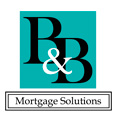Frequently Asked Questions
A Mortgage Broker acts as an intermediary between you and mortgage lenders. A broker’s job is to work on your behalf to find a great lender to fit your needs with excellent rates. Mortgage brokers are licensed and regulated financial professionals. All of B&B’s Mortgage Brokers are lender-paid which means that the lender pays for their services instead of you paying.
Mortgage Brokers specialize in home loans and armed with their expansive expertise and connections, they can help guide you through a much wider variety of loan options that could be right for you. Banks typically offer only a few loan options while B & B Mortgage works with many different lenders, giving us the ability to find a mortgage structure that fits your specific situation.
To help you get a mortgage loan, lenders require information related to your employment and finances. To start the loan process you will be asked to submit:
- Completed application (one per borrower)
- Federal Tax Returns including all schedules and attachments for the past two years
- W-2 form for the past two years
- Current pay stubs for the most recent 30-day period
- Most recent asset statements for two months (checking, savings, investment, retirement)
- Current mortgage statement for any real estate owned
How much you can borrow depends on your income, credit history, down payment size, employment and residence history amongst other factors. However, the amount you are capable of borrowing may exceed the amount you can comfortably afford. The standard rule for how much you should borrow is that your monthly expenses (your mortgage alongside expenses like children’s tuition, electricity, insurance, etc.) should not exceed 36% of your gross monthly income. Each situation is different, and talking to our experts can help determine how much to borrow.
Conventionally, the minimum deposit is 20% of the home’s value. If you have a fantastic credit rating and history, you might be able to put only a 10% deposit down and the requirement for a government-backed loan is even less. Minimum down payments will vary with the type of mortgage you choose.
The higher your credit score, the better it proves to the lenders you can repay the loan. Borrowers with credit scores of 740 or higher generally get better mortgage rates and terms. In order to get approved for a standard loan, you need to have at least 620-640 credit score. However, if your credit score is not high enough for a conventional loan, there are still options available to you. FHA (Federal Housing Administration) loans, also known as sub-prime mortgages might allow for scores as low as 500 with 10% down and 3.5% down for a 580 credit score. There may also be first time homebuyer grants and down payment assistance programs. Also, VA (Veterans Administration) Home Loans may have options if you’re a veteran. Some ways to compensate for a poor credit score are: a large down payment, low debt-to-income ratio, high income, no outstanding debt, large amount of cash reserves, significant amount of time with current employer, and a reliable history of paying rent comparable to expected monthly mortgage payments.
A fixed rate mortgage has an interest rate that stays the same throughout the entire loan period. The principal and interest payments remain the same. For this security, the interest rate is usually higher than the initial interest rate on adjustable-rate mortgages.
ARM is a loan that has a low fixed interest rate for an initial period of 1 to 10 years, and after the time expires, the interest rate adjusts to the market interest rates. The monthly payments could increase or decrease depending on how the market is when the loan adjusts.
Our experienced and talented mortgage brokers can help you compare mortgages and choose the financial structure that works the best for you.
The APR reflects the cost of your mortgage as a yearly rate. It includes the earlier mentioned interest rate, origination charge, discount points, lender fees, processing costs, documentation fees, prepaid mortgage interest, upfront and monthly mortgage insurance premium and other costs.
The interest rate is the percent of the principal (amount of money borrowed) charged by the lender for the use of its money.
When comparing loans across different lenders, it is best to use the quoted APRs for the same type and term of loan.
One point is equivalent to 1% of your loan amount. Paying points can help reduce your interest rate when you purchase or refinance your home. Basically, you pay up-front for a lower interest rate so you have smaller monthly payments.
During a mortgage closing, the borrower and/or seller pay for fees incurred during the real estate or mortgage transaction, otherwise known as closing costs. These include a loan origination fee, discount points, attorney’s fees, title insurance, appraisal, survey, taxes and insurance escrow payments. You will receive a Loan Estimate that approximates these closing costs for your loan after you apply.
Bobby Chow
Bobby.Chow@bbhawaii.com
808-295-4407
Bradley Shinagawa
Bradley.Shinagawa@bbhawaii.com
808-652-2904
Marlisa Hee
Marlisa@bbhawaii.com
808-306-4144
Jacque Viloria
Jacque.Viloria@bbhawaii.com
808-799-9652
Laurene Chan
Laurene.Chan@bbhawaii.com
808-224-9665
Ryan Hew
Ryan@bbhawaii.com
808-779-5122
Kelli Ishii Yamashita
Kelli.yamashita@bbhawaii.com
808-371-5711
